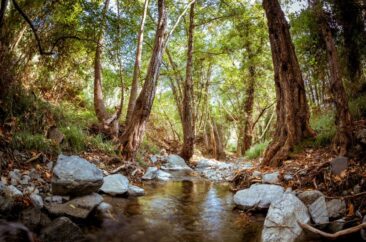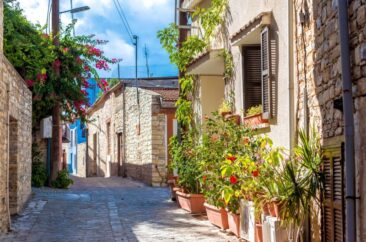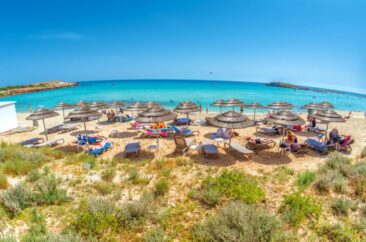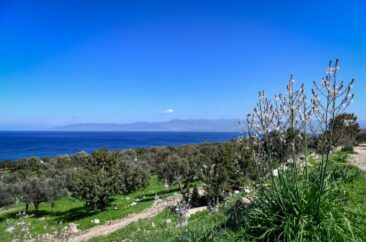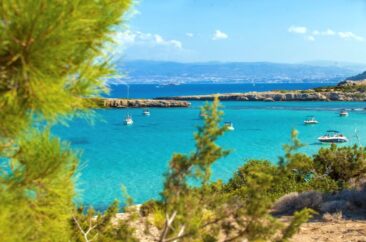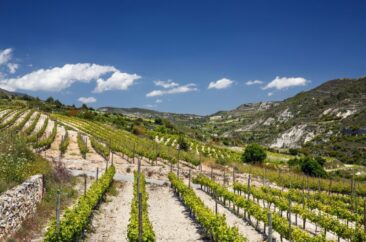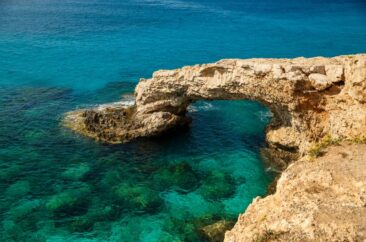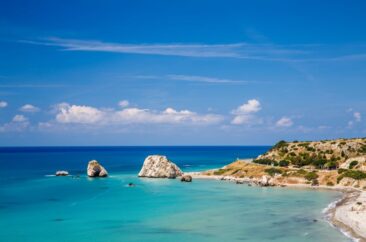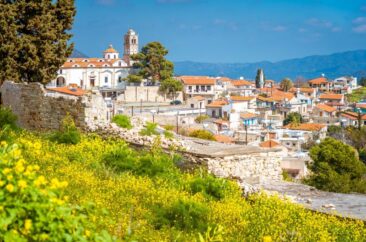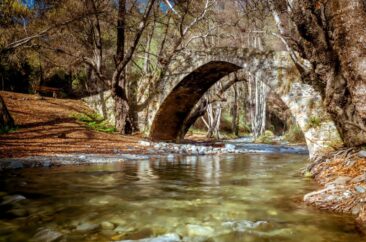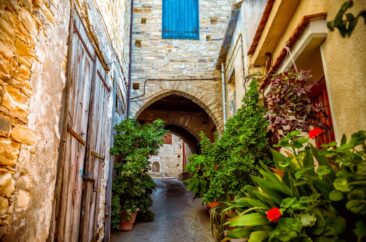There are myriad islands nestled in the Mediterranean, but only Cyprus can lay claim to being the birthplace of beautiful Aphrodite, the Ancient Greek Goddess of Love. Whatever your preference, pace or special interest, Cyprus is uniquely poised to welcome you. Our idyllic and picturesque beaches are certified as among the cleanest in Europe, with the crystal-clear waters of the coast unfolding towards the pine-clad Troodos Mountain Range, where the wild sheep, Mouflon, freely roam, and cedars grow amidst the rich history of gem-like churches and monasteries adorned with unparalleled Byzantine frescoes and icons. Cyprus is a haven for archaeology lovers. From Neolithic settlements of over 11,000 years old to spectacular Greco-Roman ruins – such as the ancient theatre of Kourion, to Medieval fortresses such as Kolossi, the list of treasures is boundless.
Although Cyprus is the third largest island in the Mediterranean, it is surprisingly compact and easy to explore. In between rugged mountain peaks and the shimmering coast, you’ll traverse the undulating landscape and rolling hills with vineyards. Linger in idyllic villages where the rhythm slows down and there’s always time for another coffee.
All across Cyprus, you’ll have the opportunity to experience a distinctive cuisine composed of meze; small plates of local delicacies from flame-grilled, delicately spiced meats, to fresh vegetables and amazing cheeses, such as the famous Halloumi (the savoury sheep and goat’s cheese that is beloved for its versatility, and particularly popular grilled or eaten with watermelon).
You will soon discover that Cypriot people are worldly and warm, and only too happy to share their island with you, including, among many other things, an attractive range of accommodations – luxurious hotels of the highest international standards infused with local flavour, quality tourist villas, agrotourism options and more






